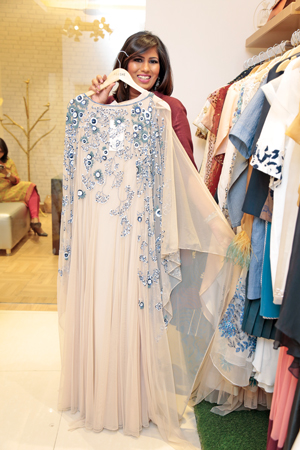
The Changing Marwari Family Structure
CEO, LetsMD.com
One of the major positives of the break-up of the joint family system is that it does not lead to internal disputes, thereby impairing the family business. Further, each person becomes aware of his or her own income and expenditure, which helps align income with his/her role in the family business. This has led to people working harder in many cases, as they feel they might not generate the same income by switching jobs, or by starting their own business. Usually Marwari joint families are conservative in nature and may not allow women to work. With nuclear families, it has become more convenient for women now to have equal opportunity in workplaces. On the flip side, with the supporting structure gone, members have to divide their time between professional and household work. It also makes coordination tough, as access to each other gets limited to occasions and events only.
Krishna Gupta 
MD, Lloyds Luxuries
Marwari businesses have mostly been built on trust and by harnessing knowledge and expertise from a trusted few—the family members. In
Marwari businesses, which are mostly family-run, each family member plays a vital role in the success of the business. With this reducing, in the future it is likely to impact the Marwari business community. This is mainly because it’s difficult to find trustworthy employees to run and expand a large-scale business—it’s hard to rely on people who are not a part of the family and entrust them with handling important and crucial parts of the business. With the joint family concept losing ground, I feel factors like
these could negatively impact Marwari businesses and cause delays in achieving success, thereby reducing the number of successful and powerful Marwari business houses, going forward.
Dimple Nahar 
Owner & Founder. 2Divine – The Lifestyle Temple
I believe that break-up of the joint family system is not likely to seriously impact Marwaris as a business community. Every Marwari family functions differently; some are becoming progressive and nuclear with time as they open up to new ventures and possibilities. The factors that had bound them earlier in the joint set-up, however, have not deteriorated with living apart, since they continue to give importance to work and family. Marwari families have changed in the way they function over the years. Firstly, the approach towards work is not casual anymore. Secondly, they are feeling the need to keep work and family separate. Thirdly, since the early 2000s, a wave of professionalism and modernism has swept into the community, doing away with previous negative aspects of business. For example, at 2Divine – The Lifestyle Temple, I look into matters personally and find ideal measures to run the business smoothly and efficiently. My company likes to take accountable risks and explore new fields; we do not just look for experience nowadays but for talent and determination too.
Sonal Sawansukha 
Founder and Creative Director, Jewel Saga
I come from a Marwari joint family that has been in the gemstone business for three generations. When I set out to pursue my dream, my family encouraged me to follow the entrepreneurial path and introduced me to a new business vertical. Being always passionate about jewellery design, I acquired a degree for the same and initiated my business. From the initial capital to my first clients, my family’s contribution made a big difference in everything. Also, my family and its goodwill in the trade helped me establish my brand. Having a big joint family also made me more relaxed when it came to household responsibilities. If I had belonged to a nuclear family, setting out as an independent entrepreneur would have made my journey more difficult. Thus, I believe that these new dynamics are surely affecting us Marwaris as a business community.
Trishla Surana 
Founder and Designer, Colour Me Mad
Marwaris have always had a strong family structure which has defined their social and business ethos. Family-owned business structures have worked for them and they have thrived for generations because of it. However, with changing times, nuclear families are becoming more common. As a consequence, businesses are seen to be coming under increasing pressure to survive and thrive. Given that our younger generations are increasingly choosing alternative careers and that businesses these days often are under pressure to reinvent themselves, there is an increasing need to provide our younger generations the opportunity to diversify and keep the business relevant to the current scenario. The older generations can facilitate this transition while also continuing to pass down their business acumen and financial/ management skills, which the Marwari community is well known for.









